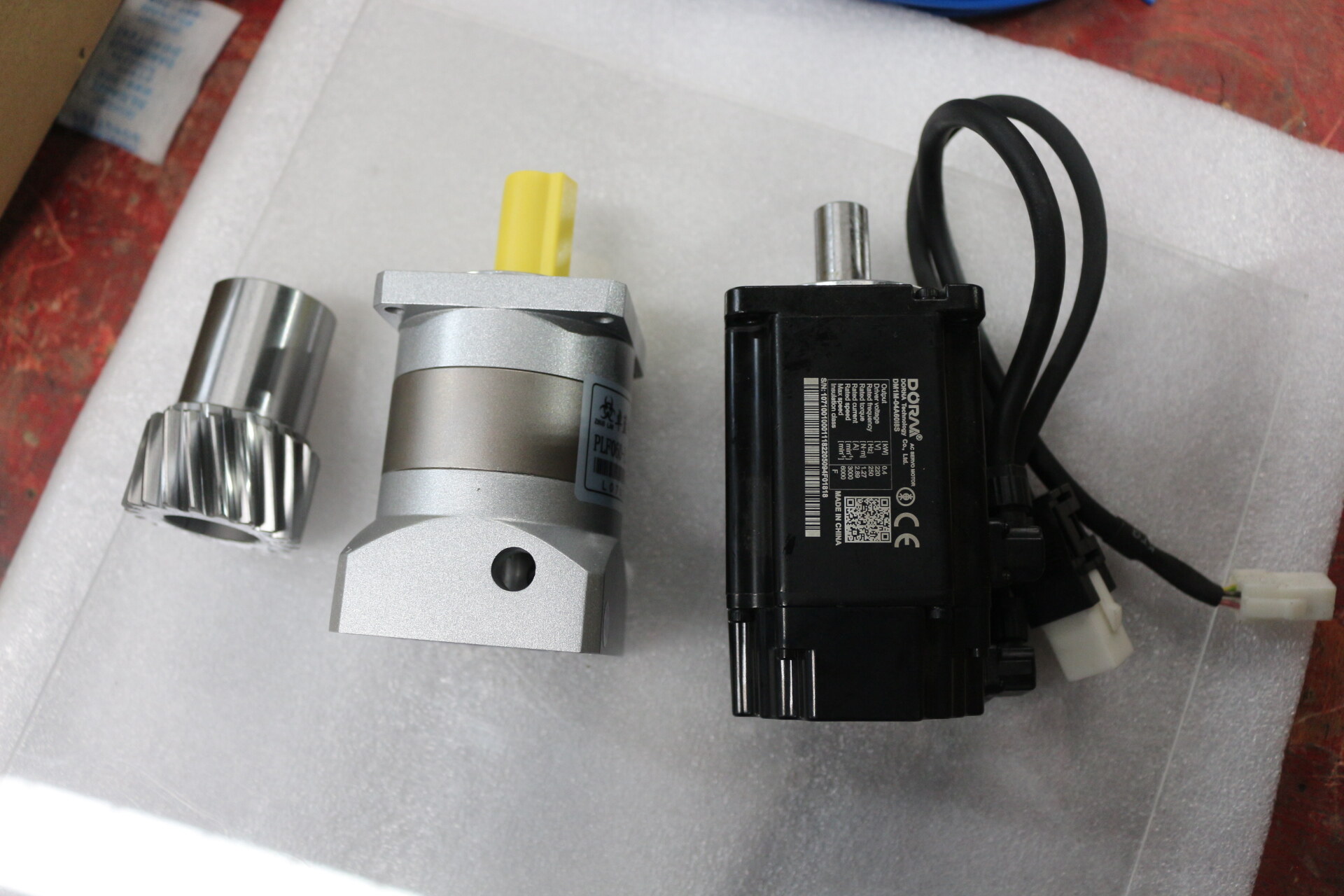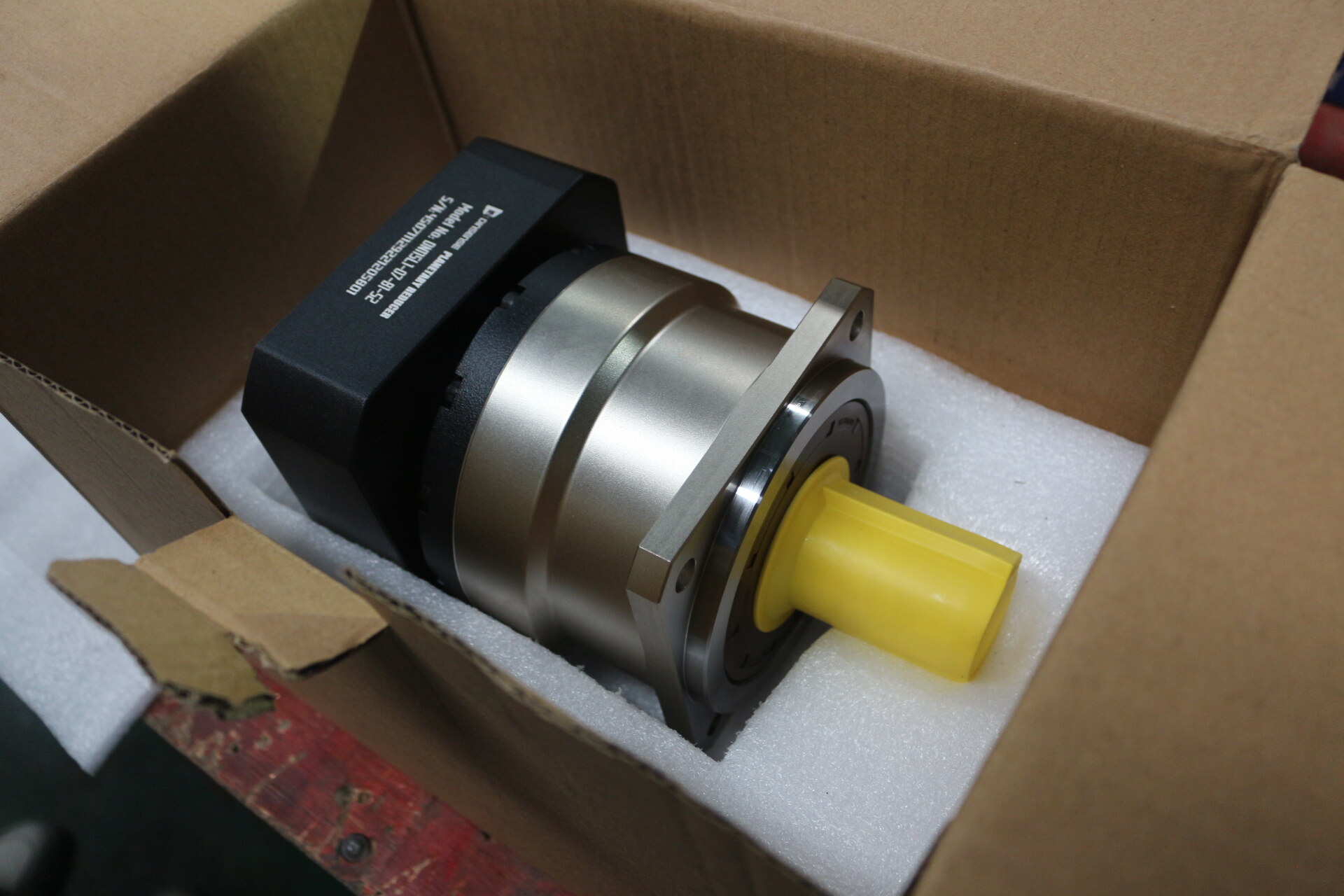Lỗi định dạng email
emailCannotEmpty
emailDoesExist
pwdLetterLimtTip
inconsistentPwd
resetAccountPassword
forTheAccount
pwdLetterLimtTip
inconsistentPwd
resetSuccess
resetSuccessTips
login


High Precision Servo Reducers: The Heartbeat of Advanced Machinery
2023-12-01 14:54:26
The pursuit of precision and efficiency in the field of automation and robotics is unyielding. High precision servo reducers sit at the core of this quest, providing the essential function of fine-tuning the motion delivered by servo motors to the exact needs of sophisticated machinery. These components are pivotal in translating raw power into controlled, precise movements, making them indispensable in a wide array of modern industrial applications.
At its most basic, a servo reducer is a gear train that reduces the high speed of the motor to a slower, more usable speed, while simultaneously increasing the torque output. The gear ratio, which is the relationship between the speed of the motor and the speed of the output shaft, is a critical factor in the design and selection of a servo reducer.
Servo reducers can employ various types of gears, each with its own advantages. Spur gears are known for their simplicity and efficiency, helical gears offer smoother and quieter operation, and planetary gears provide high torque density and compactness. The choice of gear type directly impacts the performance characteristics of the reducer.
Key Features of High Precision Servo Reducers
High precision servo reducers are designed to deliver unparalleled accuracy, ensuring that the output shaft rotates exactly as intended, which is crucial for applications such as robotic arms or CNC machines. Efficiency is also a hallmark of these devices, as they are engineered to transmit power with minimal energy loss.
Low Backlash Design
Backlash, the slight movement between gears when the direction of load is reversed, is a critical consideration. High precision servo reducers are constructed to have low or even zero backlash, which is essential for maintaining the accuracy of positioning systems.
High Torque Capabilities
Despite their compact size, these reducers are capable of handling high torque loads, making them suitable for applications that require substantial power in a small footprint.

Material and Manufacturing Innovations
Advanced Materials for Durability
The materials used in high precision servo reducers, such as high-grade alloys, are selected for their strength and ability to withstand the rigors of continuous operation. This ensures that the reducers can operate reliably over long periods.
Precision Engineering Techniques
Manufacturers employ various techniques to enhance the performance of servo reducers. Tooth surface hardening increases wear resistance, while the selection and design of bearings are critical for maintaining precision under load.
Selecting the Right Servo Reducer for Your Application
Choosing the appropriate servo reducer involves understanding the load requirements, speed, and precision needs of your application. It’s also important to ensure that the reducer is compatible with the servo motor it will be paired with.
Installation and Maintenance Best Practices
Proper Installation for Optimal Performance
Correct installation is vital for the performance of high precision servo reducers. Misalignment can lead to premature wear and reduced accuracy.
Routine Maintenance to Prolong Lifespan
Regular maintenance, including lubrication and cleaning, as well as inspection for wear and tear, is essential for ensuring the longevity and reliability of the reducer.
Future Trends in Servo Reducer Technology
Smart Servo Reducers with IoT Integration
The future of servo reducers lies in smart, connected devices that can communicate with other components of a system for improved diagnostics and adaptability.
Eco-friendly and Energy-efficient Designs
As industries move towards sustainability, the demand for energy-efficient designs that reduce the carbon footprint of machinery is growing.
Conclusion
High precision servo reducers are a testament to the incredible advances in engineering and manufacturing. They are the unsung heroes of the industrial world, quietly but crucially contributing to the precision and efficiency that modern applications demand. When selecting and utilizing servo reducers, one must consider not only their immediate requirements but also the broader trends that will shape the future of this vital technology.
The Mechanics of Servo Reducers
At its most basic, a servo reducer is a gear train that reduces the high speed of the motor to a slower, more usable speed, while simultaneously increasing the torque output. The gear ratio, which is the relationship between the speed of the motor and the speed of the output shaft, is a critical factor in the design and selection of a servo reducer.
Types of Gears Used in High Precision Reducers
Servo reducers can employ various types of gears, each with its own advantages. Spur gears are known for their simplicity and efficiency, helical gears offer smoother and quieter operation, and planetary gears provide high torque density and compactness. The choice of gear type directly impacts the performance characteristics of the reducer.
Key Features of High Precision Servo Reducers
Enhanced Accuracy and Efficiency
High precision servo reducers are designed to deliver unparalleled accuracy, ensuring that the output shaft rotates exactly as intended, which is crucial for applications such as robotic arms or CNC machines. Efficiency is also a hallmark of these devices, as they are engineered to transmit power with minimal energy loss.
Low Backlash Design
Backlash, the slight movement between gears when the direction of load is reversed, is a critical consideration. High precision servo reducers are constructed to have low or even zero backlash, which is essential for maintaining the accuracy of positioning systems.High Torque Capabilities
Despite their compact size, these reducers are capable of handling high torque loads, making them suitable for applications that require substantial power in a small footprint.
Material and Manufacturing Innovations
Advanced Materials for Durability
The materials used in high precision servo reducers, such as high-grade alloys, are selected for their strength and ability to withstand the rigors of continuous operation. This ensures that the reducers can operate reliably over long periods.Precision Engineering Techniques
Manufacturers employ various techniques to enhance the performance of servo reducers. Tooth surface hardening increases wear resistance, while the selection and design of bearings are critical for maintaining precision under load.Selecting the Right Servo Reducer for Your Application
Choosing the appropriate servo reducer involves understanding the load requirements, speed, and precision needs of your application. It’s also important to ensure that the reducer is compatible with the servo motor it will be paired with.Installation and Maintenance Best Practices
Proper Installation for Optimal Performance
Correct installation is vital for the performance of high precision servo reducers. Misalignment can lead to premature wear and reduced accuracy.Routine Maintenance to Prolong Lifespan
Regular maintenance, including lubrication and cleaning, as well as inspection for wear and tear, is essential for ensuring the longevity and reliability of the reducer.Future Trends in Servo Reducer Technology
Smart Servo Reducers with IoT Integration
The future of servo reducers lies in smart, connected devices that can communicate with other components of a system for improved diagnostics and adaptability.Eco-friendly and Energy-efficient Designs
As industries move towards sustainability, the demand for energy-efficient designs that reduce the carbon footprint of machinery is growing.Conclusion
High precision servo reducers are a testament to the incredible advances in engineering and manufacturing. They are the unsung heroes of the industrial world, quietly but crucially contributing to the precision and efficiency that modern applications demand. When selecting and utilizing servo reducers, one must consider not only their immediate requirements but also the broader trends that will shape the future of this vital technology.Liên hệ chúng tôi

